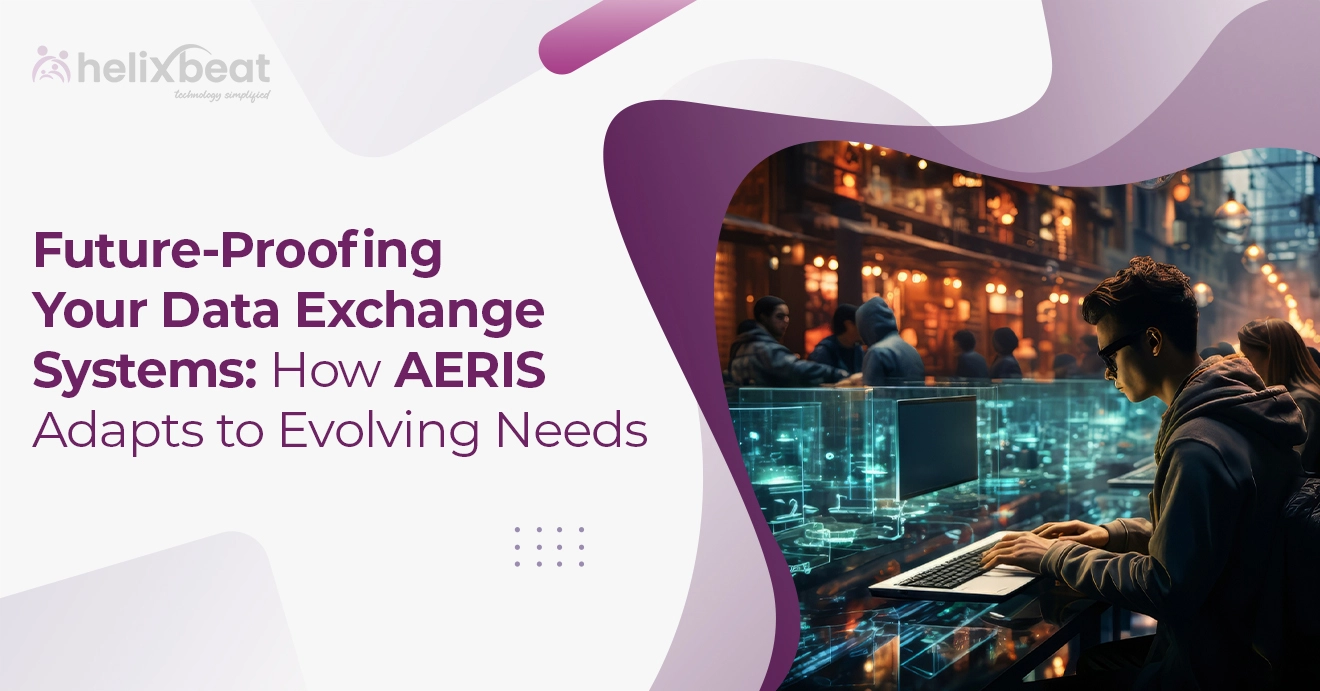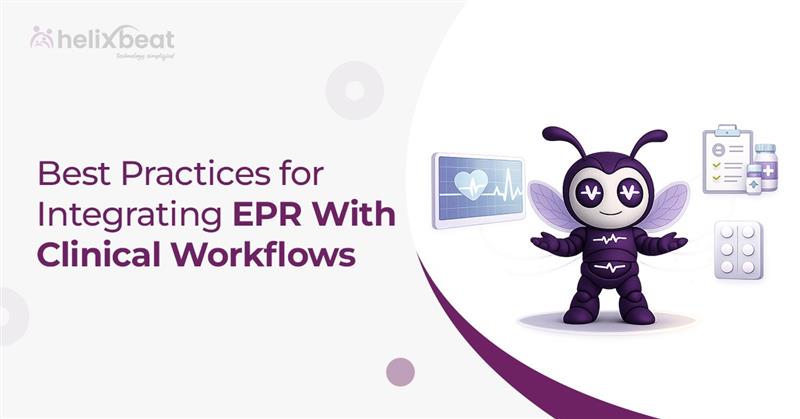In a world where data flows faster than ever, the ability to exchange information seamlessly and securely has become the lifeblood of modern organizations. Healthcare organizations can no longer afford to treat data exchange systems as a mere utility—they are now the backbone of operations, driving everything from decision-making to patient experiences. In this blog, we’ll discuss how AERIS, a leading adaptive exchange interoperability platform, empowers healthcare organizations to stay ahead of the curve and future-proof their data exchange systems.
Table of Contents
The Changing Landscape of Data Exchange
The past decade has witnessed a significant evolution in data exchange systems. Fueled by the growth of big data, the rise of AI, and mounting regulatory pressures, cutting-edge cloud-based platforms are now replacing traditional methods like manual file-sharing or point-to-point integrations. Besides, systems today handle real-time data streams, comply with privacy laws like HIPAA, and support interoperability across diverse technologies and industries.
However, with great advancements come great challenges. Today, healthcare providers grapple with issues like:
- Data Silos: Fragmented systems leading to inefficient operations.
- Security Risks: Increasing vulnerabilities to cyberattacks.
- Scalability Needs: Systems unable to grow with business demands.
- Compliance Pressures: Adhering to ever-changing regulations.
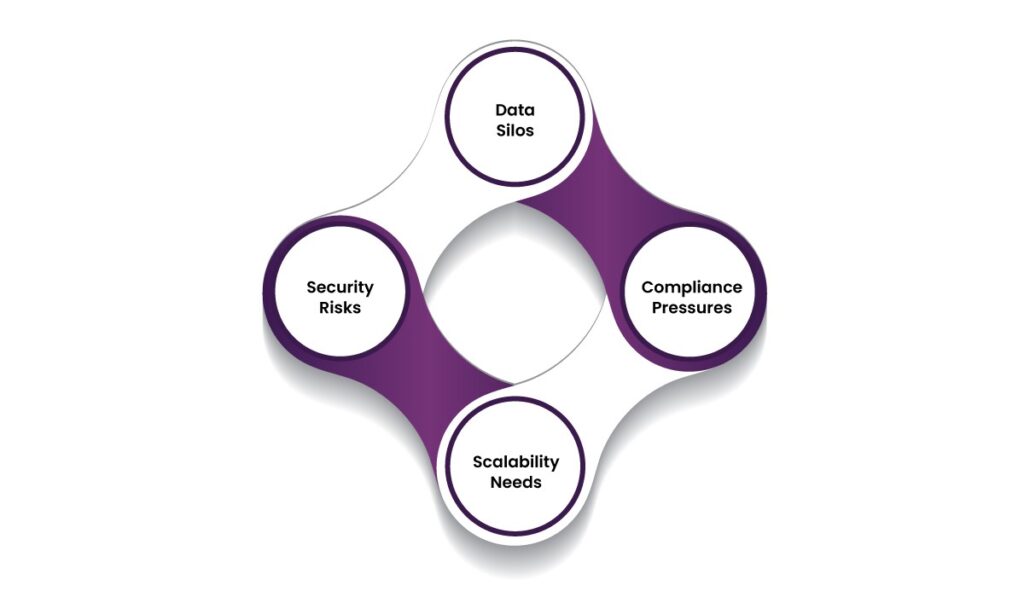
AERIS addresses these challenges by offering adaptive solutions designed to future-proof your data exchange systems.
How AERIS is Revolutionizing Data Exchange and Standardization
AERIS is more than just an interoperability platform; it’s a solution designed to future-proof healthcare data exchange. By leveraging advanced technologies and adaptive methodologies, AERIS addresses the challenges of standardization and scalability.
1. Unified Data Standards
AERIS integrates multiple data standards like HL7, FHIR, Nested Structure, and Flat Structure into a unified framework. This way, it bridges the gap between legacy systems and modern protocols. For example, it can seamlessly convert data from older formats, such as HL7, into newer, more versatile standards like FHIR. This capability eliminates silos and facilitates consistent communication across diverse systems.
2. Scalable Architecture
The modular architecture of AERIS makes it possible to scale and adapt to changing organizational requirements. That’s why AERIS can adapt to increased data volumes as healthcare providers expand their services or adopt new technologies. This scalability allows healthcare organizations to remain agile and responsive in the face of industry changes.
3. Advanced Security Protocols
Data security is paramount in healthcare, where breaches can have devastating consequences. AERIS incorporates advanced encryption, role-based access controls, and real-time monitoring to safeguard sensitive patient information. These measures align with regulatory requirements like HIPAA, which helps build trust among stakeholders.
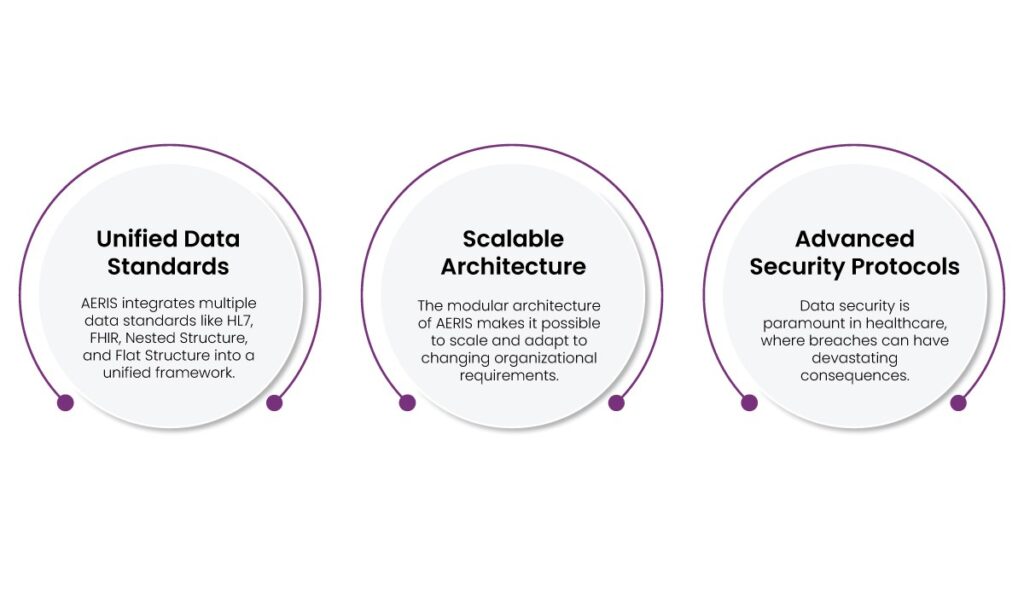
Adapting to Evolving Needs
The healthcare sector is constantly in flux, shaped by technological advancements, regulatory updates, and shifting patient expectations. AERIS is uniquely positioned to adapt to these changes. Here’s how:
1. Regulatory Compliance
Healthcare regulations are continually updated to address emerging challenges. AERIS simplifies regulatory compliance with its pre-built framework. Also, by proactively monitoring and adapting to evolving policy changes, the platform minimizes administrative burdens and reduces risks associated with non-compliance.
2. Customized Solutions for Diverse Needs
No two healthcare organizations are the same. AERIS offers customization options to address the unique challenges of hospitals, clinics, diagnostic centers, and research institutions. Whether it’s creating specific workflows, integrating with specialized equipment, or tailoring user interfaces, AERIS adapts to meet the needs of diverse users.
For example, a research facility may require complex data modeling tools, while a community clinic may prioritize simplicity and speed. AERIS accommodates both with equal efficiency.
3. Support for Population Health Management
AERIS can play a pivotal role in population health management by aggregating data from multiple sources. This capability can enable healthcare organizations to identify health trends, address disparities, and allocate resources effectively. Therefore, by supporting proactive interventions, AERIS can contribute to healthier communities and reduce healthcare costs.

Practical Tips for a Smooth Transition to AERIS
Transitioning to a platform like AERIS is a big move, but it doesn’t have to be scary. Here are some practical tips to make the adoption process seamless:
1. Start Small and Scale Up
Start with a pilot project, like implementing AERIS in a single department or focusing on a specific data flow. Demonstrating early benefits in a controlled environment can simplify expansion across other areas.
2. Involve Stakeholders Early
Engage clinicians, administrative staff, IT teams, and compliance officers right from the start. Their collective expertise will help us customize AERIS to your organization’s unique requirements.
3. Communicate the Vision
Clearly articulate the reasons for adopting AERIS. Highlight how real-time data exchange reduces patient delays, enhances safety, and improves overall workflows. Transparency in communication promotes collaboration and enthusiasm.
4. Comprehensive Support by HelixBeat
HelixBeat offers extensive training resources, documentation, and customer support to guide you through the process. Utilize these tools to address challenges and gain confidence in using AERIS.
5. Measure and Celebrate Success
Track key performance metrics like lab result processing or patient discharge times before and after implementation. Recognizing and celebrating achievements motivates teams and sustains progress.
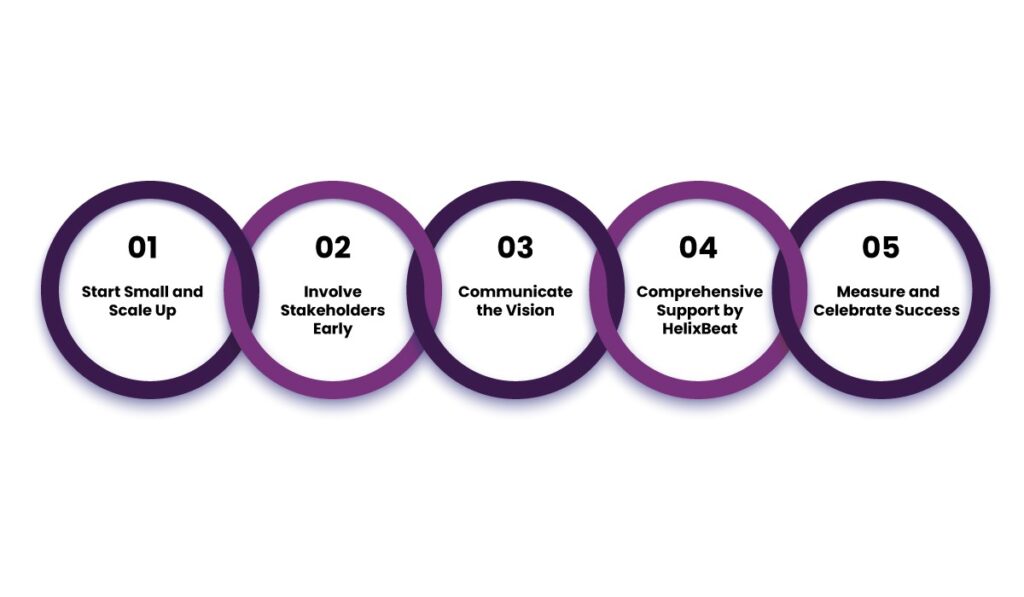
The Road Ahead
As the healthcare industry continues to evolve, the need for robust and adaptable data exchange systems will only grow. AERIS stands at the forefront of this transformation, empowering organizations to navigate complexities with confidence. Its commitment to innovation, standardization, and scalability positions it as a cornerstone of future-ready healthcare systems.
If you’re ready to revolutionize the way your organization manages healthcare data? Discover how AERIS can streamline operations and drive meaningful change. Contact us today to schedule a demo and explore the future of healthcare data exchange.
FAQs
1. What is a data exchange system, and why is it crucial in healthcare?
A data exchange system facilitates the seamless transfer of information between various healthcare systems. This enables efficient operations, improved patient care, and compliance with regulatory requirements.
2. How does AERIS improve the scalability of data exchange systems?
AERIS uses a modular architecture that allows organizations to scale their data exchange systems in response to increased data volumes or evolving technological needs.
3. What role does AERIS play in addressing data silos in healthcare organizations?
AERIS bridges fragmented systems by integrating diverse data standards, like HL7 and FHIR, into a unified framework, thus facilitating smooth communication between legacy and modern systems.
4. How does AERIS help healthcare organizations maintain regulatory compliance?
AERIS includes pre-built frameworks for compliance with regulations like HIPAA and continually adapts to evolving policy changes to reduce the risk of non-compliance.
5. What security measures does AERIS offer to protect sensitive data?
AERIS incorporates advanced encryption, role-based access controls, and real-time monitoring to safeguard sensitive information against cyber threats.
6. How does AERIS contribute to population health management?
By aggregating data from various sources, AERIS enables healthcare organizations to analyze trends, address disparities, and allocate resources effectively for better population health outcomes.
7. What are the key benefits of adopting AERIS for healthcare data exchange?
AERIS offers unified data standards, scalable architecture, robust security protocols, regulatory compliance, and support for diverse organizational needs, making it a comprehensive solution for modern healthcare challenges.



